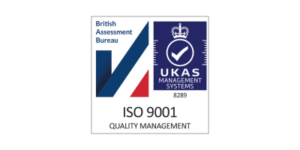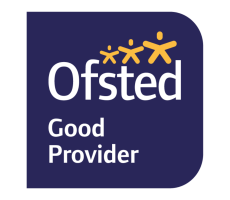Increase procurement knowledge, gain valuable leadership and management skills, and business competencies with an OFSTED Rated ‘Good’ provider. Start your career here…









Adding to our commitment to excellence, we are proud to announce that we are OFSTED rated “Good”, which further underscores the quality and effectiveness of our education and training programmes. This accolade reflects our dedication to providing an enriching learning environment, supported by a team of professionals passionate about fostering the success of our students in procurement and supply.

Apprenticeship Standards are training programmes which combine practical training linking to occupational professions, whilst in full time employment. The duration of an apprenticeship must be at least 12 months in term and offers the opportunity for apprentices to ‘earn while you learn’ and enable apprentices to gain a qualification within that regulated profession. In the UK this is funded via the Levy and governed by the Education and Skills Funding Agency (ESFA).
Apprenticeship standards are developed in conjunction with employer organisation with the purpose of developing occupational competencies to increase organisational effectiveness and efficiencies through increasing apprentice’s knowledge, skills, and behaviours.

Our Apprenticeships cater to workers in all sectors, including Construction, Logistics, Hospitality, Retail, Healthcare, and Manufacturing Sectors. Whether you’re just starting out or looking to upskill, we offer hands-on training and support to help reach your goals.
Develop expertise in managing projects efficiently, reducing costs, and negotiating contracts to improve construction operations.
Enhance your skills in warehouse and inventory management, supplier management, and procurement and supply chain apprenticeships
Refine your inventory management skills, reduce waste, and costs while sourcing quality products to enhance guest experience.
Master the art of product procurement, inventory control, and supply chain logistics, and learn to make data-driven decisions to improve retail operations.
Develop your inventory management skills to ensure adequate medical supplies and reduce waste in healthcare facilities, improving patient care.
Learn to optimise the sourcing of materials, negotiate contracts, and implement solutions to improve production efficiency in manufacturing.
Make an impact in your community by developing skills in policy, finance, public services, and community engagement.
Passionate about patient care? Enhance your expertise in sourcing, managing supplies, and implementing cost-saving solutions in the medical world.
Make a difference in education by improving the sourcing and delivery of materials, reducing costs, and enhancing student learning outcomes.
Manage complex logistics operations and optimise fleet management to improve efficiency. Become a professional at reducing costs, and negotiating contracts.
Acquire knowledge to oversee intricate projects, minimise expenditures, and optimise workflow in the challenging but rewarding world of the armed forces.
Be a leader in your field; develop skills and behaviours to support environmental goals and sustainability targets.
An Apprenticeship is a training system which combines practical training, linked to a full-time employed job role. The duration must be at least 12 months in term and offers the opportunity to ‘earn while you learn’ and enable practitioners to gain a qualification within that regulated profession. In the UK this is funded via the Levy and governed by the Education and Skills Funding Agency (ESFA).
To dispel any myths that they are only for school leavers, Apprenticeships in the England are available for 16-60-year olds. Not only are they for the support and development of a new generation, they are also available for upskilling existing employees. As long as there is a requirement to learn new Skills, Behaviour and Knowledge, the Apprenticeship route is an option.
With an apprenticeship, learners will gain the knowledge, the skills, and crucially, the industry experience necessary for a successful career.
Apprenticeships are an opportunity to acquire skills and professional experience, but they have a much wider impact. Learners gain confidence in their talents and approach to new situations outside their comfort zone, unlocking a desire to achieve aspirations.
As part of the government’s plan to increase the quantity and quality of Apprenticeships they have introduced a new tax – the Levy.
Commenced on 6th April 2017, the levy applies to all UK employers with a pay bill of £3 million a year in all sector. Approximately 1.3% of employers pay the levy.
Employers have an allowance of £15,000 to offset against their levy payment. This allowance is topped up by 10% by the government and held in a Digital Apprenticeship Service account for a maximum of 24 months. The levy payment is set at 0.5% of an employer’s pay bill, and is paid to HMRC through PAYE.
Since May 2017, Levy funds have been available through a new digital service. Levied employers have been able to buy training since May 2017; funds leave digital account on a monthly basis and will spread over the duration of the apprenticeship. 20% of the total cost will be paid on completion of the apprenticeship.
Non-levied employers can also use the apprenticeship levy to received funding support for Apprenticeships. Non-levy paying employers can share the cost of the Apprenticeship training and assessing with the government with co-investment. Employers will need to pay just 5% of the cost of the Apprenticeship and the government will pay the remaining 95% (up to the funding band maximum). The training must be delivered by an approved provider and the Apprenticeship must be an approved standard. Employers can access this support through the National Apprenticeship Service.
There is no natural pause, as soon as they finish one module a new one is issued and started. All Apprentices should be actively learning throughout their ‘practical period’ until they get to the EPA Gateway. At this point, they start their project.
OFSTED (Office for Standards in Education, Children’s Services and Skills) is a regulatory body that inspects and regulates services providing education and skills for learners of all ages in England.
The Ofsted ranking is determined through a detailed inspection process, based on a specific framework focusing on quality of education, learner behaviour and attitudes, personal development, and leadership and management. Inspectors conduct on-site observations, review performance data, and engage with staff, learners, and sometimes parents to evaluate the providers effectiveness across these key areas.
Learner Engagement: Apprentices are enthusiastic and enjoy their learning,
Skills Development: There is a focus on developing essential professional skills such as negotiation and teamwork, with apprentices successfully applying these at work,
Support Systems: Apprentices are well-supported, feel safe, and benefit from comprehensive guidance on local and regional risks.
Teaching Quality: Tutors and Mentors are highly qualified, ensuring apprentices benefit from relevant and current teaching methods.
Yes!
If you don’t pay the levy as you are under the pay bill threshold you can still receive funding support for Apprenticeships. Non-levy paying employers can share the cost of the Apprenticeship training and assessing with the government with co-investment. From May 2017 the employer will just need to pay 5% of the cost of the Apprenticeship and the government will pay the remaining 95% (up to the funding band maximum). The training must be delivered by an approved provider and the Apprenticeship must be an approved standard or framework.
Employers can access this support through the National Apprenticeship Service.
We are an OFSTED Rated ‘Good’ Provider, which is a testament to our quality of education and provision of apprenticeship learning.
We are currently the largest provider on the Register of Apprenticeship Training Providers and an approved training provider for the Commercial Procurement and Supply Apprenticeship standard (previously known as Public Sector Commercial Level 4 Apprenticeship).
Running alongside our Level 4 Apprenticeship is our Level 3 Procurement and Supply Assistant Apprenticeship where our students can gain their L3 Procurement Assistant Qualification.
These standards is suitable for all organisations.
This level 4 apprenticeship is suitable for all organisations and will take 2 years to complete.
• Knowledge
• Skills
• Behaviours
• CIPS Level 4 Diploma
• Project Report (5000 words)
• Presentation and Questioning Interview
For full details of all the learning objectives please email info@srscc.co.uk for the level content guide
The End Point Assessment is the process that takes place after an apprentice have completed their learning and is used to assess whether a learner has met all the knowledge, skills and behaviour element requirements of the apprenticeship standard. The EPA must satisfy a business need and usually involves two elements, for instance, portfolio of evidence, examinations, project reports, professional discussions, presentations, and interviews.
For learners, the EPA showcases their newly acquired knowledge, skills and behaviours to their organisations. EPA raises their profile within their business and accelerates promotion and career development opportunities.
A “Good” rating signifies that the institution provides quality education, care, and safeguarding that meets the needs of all learners. This recognition is vital for parents, students, and the wider community, indicating that the institution delivers a high standard of education.
A “Good” or higher rating is often a key factor for parents when choosing schools for their children, making it a critical marker of trust and quality.
Learners enrolling with an OFSTED Good rated provider can look forward to receiving high-quality education and support, within a nurturing and inclusive environment. They will benefit from effective teaching, a relevant and engaging curriculum, and a focus on personal development as well as academic achievement.
Additionally, SRSCC will provide strong career guidance, preparing students for their future endeavours in further education, apprenticeships, or employment. Overall, a ‘Good’ Ofsted rating signifies a commitment to educational excellence, ensuring a positive and holistic learning experience.
Graduates from a provider with a ‘Good’ Ofsted rating are well-positioned for enhanced employability and further education opportunities, thanks to the high-quality, comprehensive education they receive.
This rating assures potential employers of the graduates’ strong foundation in both academic and essential soft skills, such as teamwork, communication, and problem-solving. It signals that these individuals are not only knowledgeable but also adaptable and resilient, qualities that are highly valued in the modern workforce and in further academic pursuits. Consequently, these graduates are viewed as attractive candidates, likely to succeed and contribute positively in their future careers or educational pathways.




Adding to our commitment to excellence, we are proud to announce that we are OFSTED rated “Good”, which further underscores the quality and effectiveness of our education and training programmes. This accolade reflects our dedication to providing an enriching learning environment, supported by a team of professionals passionate about fostering the success of our students in procurement and supply.
Apprenticeship Standards are training programmes which combine practical training linking to occupational professions, whilst in full time employment. The duration of an apprenticeship must be at least 12 months in term and offers the opportunity for apprentices to ‘earn while you learn’ and enable apprentices to gain a qualification within that regulated profession. In the UK this is funded via the Levy and governed by the Education and Skills Funding Agency (ESFA).
Apprenticeship standards are developed in conjunction with employer organisation with the purpose of developing occupational competencies to increase organisational effectiveness and efficiencies through increasing apprentice’s knowledge, skills, and behaviours.

Our Apprenticeships cater to workers in all sectors, including Construction, Logistics, Hospitality, Retail, Healthcare, and Manufacturing Sectors. Whether you’re just starting out or looking to upskill, we offer hands-on training and support to help reach your goals.
Develop expertise in managing projects efficiently, reducing costs, and negotiating contracts to improve construction operations.
Enhance your skills in warehouse and inventory management, supplier management, and procurement and supply chain apprenticeships
Refine your inventory management skills, reduce waste, and costs while sourcing quality products to enhance guest experience.
Master the art of product procurement, inventory control, and supply chain logistics, and learn to make data-driven decisions to improve retail operations.
Develop your inventory management skills to ensure adequate medical supplies and reduce waste in healthcare facilities, improving patient care.
Learn to optimise the sourcing of materials, negotiate contracts, and implement solutions to improve production efficiency in manufacturing.
Make an impact in your community by developing skills in policy, finance, public services, and community engagement.
Passionate about patient care? Enhance your expertise in sourcing, managing supplies, and implementing cost-saving solutions in the medical world.
Make a difference in education by improving the sourcing and delivery of materials, reducing costs, and enhancing student learning outcomes.
Manage complex logistics operations and optimise fleet management to improve efficiency. Become a professional at reducing costs, and negotiating contracts.
Acquire knowledge to oversee intricate projects, minimise expenditures, and optimise workflow in the challenging but rewarding world of the armed forces.
Be a leader in your field; develop skills and behaviours to support environmental goals and sustainability targets.
An Apprenticeship is a training system which combines practical training, linked to a full-time employed job role. The duration must be at least 12 months in term and offers the opportunity to ‘earn while you learn’ and enable practitioners to gain a qualification within that regulated profession. In the UK this is funded via the Levy and governed by the Education and Skills Funding Agency (ESFA).
To dispel any myths that they are only for school leavers, Apprenticeships in the England are available for 16-60-year olds. Not only are they for the support and development of a new generation, they are also available for upskilling existing employees. As long as there is a requirement to learn new Skills, Behaviour and Knowledge, the Apprenticeship route is an option.
With an apprenticeship, learners will gain the knowledge, the skills, and crucially, the industry experience necessary for a successful career.
Apprenticeships are an opportunity to acquire skills and professional experience, but they have a much wider impact. Learners gain confidence in their talents and approach to new situations outside their comfort zone, unlocking a desire to achieve aspirations.
As part of the government’s plan to increase the quantity and quality of Apprenticeships they have introduced a new tax – the Levy.
Commenced on 6th April 2017, the levy applies to all UK employers with a pay bill of £3 million a year in all sector. Approximately 1.3% of employers pay the levy.
Employers have an allowance of £15,000 to offset against their levy payment. This allowance is topped up by 10% by the government and held in a Digital Apprenticeship Service account for a maximum of 24 months. The levy payment is set at 0.5% of an employer’s pay bill, and is paid to HMRC through PAYE.
Since May 2017, Levy funds have been available through a new digital service. Levied employers have been able to buy training since May 2017; funds leave digital account on a monthly basis and will spread over the duration of the apprenticeship. 20% of the total cost will be paid on completion of the apprenticeship.
Non-levied employers can also use the apprenticeship levy to received funding support for Apprenticeships. Non-levy paying employers can share the cost of the Apprenticeship training and assessing with the government with co-investment. Employers will need to pay just 5% of the cost of the Apprenticeship and the government will pay the remaining 95% (up to the funding band maximum). The training must be delivered by an approved provider and the Apprenticeship must be an approved standard. Employers can access this support through the National Apprenticeship Service.
There is no natural pause, as soon as they finish one module a new one is issued and started. All Apprentices should be actively learning throughout their ‘practical period’ until they get to the EPA Gateway. At this point, they start their project.
OFSTED (Office for Standards in Education, Children’s Services and Skills) is a regulatory body that inspects and regulates services providing education and skills for learners of all ages in England.
The Ofsted ranking is determined through a detailed inspection process, based on a specific framework focusing on quality of education, learner behaviour and attitudes, personal development, and leadership and management. Inspectors conduct on-site observations, review performance data, and engage with staff, learners, and sometimes parents to evaluate the providers effectiveness across these key areas.
Learner Engagement: Apprentices are enthusiastic and enjoy their learning,
Skills Development: There is a focus on developing essential professional skills such as negotiation and teamwork, with apprentices successfully applying these at work,
Support Systems: Apprentices are well-supported, feel safe, and benefit from comprehensive guidance on local and regional risks.
Teaching Quality: Tutors and Mentors are highly qualified, ensuring apprentices benefit from relevant and current teaching methods.
Yes!
If you don’t pay the levy as you are under the pay bill threshold you can still receive funding support for Apprenticeships. Non-levy paying employers can share the cost of the Apprenticeship training and assessing with the government with co-investment. From May 2017 the employer will just need to pay 5% of the cost of the Apprenticeship and the government will pay the remaining 95% (up to the funding band maximum). The training must be delivered by an approved provider and the Apprenticeship must be an approved standard or framework.
Employers can access this support through the National Apprenticeship Service.
We are an OFSTED Rated ‘Good’ Provider, which is a testament to our quality of education and provision of apprenticeship learning.
We are currently the largest provider on the Register of Apprenticeship Training Providers and an approved training provider for the Commercial Procurement and Supply Apprenticeship standard (previously known as Public Sector Commercial Level 4 Apprenticeship).
Running alongside our Level 4 Apprenticeship is our Level 3 Procurement and Supply Assistant Apprenticeship where our students can gain their L3 Procurement Assistant Qualification.
These standards is suitable for all organisations.
This level 4 apprenticeship is suitable for all organisations and will take 2 years to complete.
• Knowledge
• Skills
• Behaviours
• CIPS Level 4 Diploma
• Project Report (5000 words)
• Presentation and Questioning Interview
For full details of all the learning objectives please email info@srscc.co.uk for the level content guide
The End Point Assessment is the process that takes place after an apprentice have completed their learning and is used to assess whether a learner has met all the knowledge, skills and behaviour element requirements of the apprenticeship standard. The EPA must satisfy a business need and usually involves two elements, for instance, portfolio of evidence, examinations, project reports, professional discussions, presentations, and interviews.
For learners, the EPA showcases their newly acquired knowledge, skills and behaviours to their organisations. EPA raises their profile within their business and accelerates promotion and career development opportunities.
A “Good” rating signifies that the institution provides quality education, care, and safeguarding that meets the needs of all learners. This recognition is vital for parents, students, and the wider community, indicating that the institution delivers a high standard of education.
A “Good” or higher rating is often a key factor for parents when choosing schools for their children, making it a critical marker of trust and quality.
Learners enrolling with an OFSTED Good rated provider can look forward to receiving high-quality education and support, within a nurturing and inclusive environment. They will benefit from effective teaching, a relevant and engaging curriculum, and a focus on personal development as well as academic achievement.
Additionally, SRSCC will provide strong career guidance, preparing students for their future endeavours in further education, apprenticeships, or employment. Overall, a ‘Good’ Ofsted rating signifies a commitment to educational excellence, ensuring a positive and holistic learning experience.
Graduates from a provider with a ‘Good’ Ofsted rating are well-positioned for enhanced employability and further education opportunities, thanks to the high-quality, comprehensive education they receive.
This rating assures potential employers of the graduates’ strong foundation in both academic and essential soft skills, such as teamwork, communication, and problem-solving. It signals that these individuals are not only knowledgeable but also adaptable and resilient, qualities that are highly valued in the modern workforce and in further academic pursuits. Consequently, these graduates are viewed as attractive candidates, likely to succeed and contribute positively in their future careers or educational pathways.



By submitting the form below, you are subscribing to SR Supply Chain Consultants Ltd mailing list.
Telephone: 01772 282555
Email: info@srscc.co.uk
© Copyright – 2024 | SR Supply Chain Consultants | All Rights Reserved

Sales Executive
Laura has over 10 years of client focused experience in Sales, Marketing, Customer Service and Education. Laura completed Business Studies at Runshaw Adult College before successfully achieving a First Class Honors Degree in Tourism and Events Management at the University of Central Lancashire.
Laura joined SRSCC in 2021, previously supporting our Customer Service and Progress Mentor Team to provide academic and practical support for learners and employers on their apprenticeship journey.
In 2022 Laura embarked on her backpacking travels across South-East Asia before getting a real ‘travel bug’ and making her way to Australia where she lived and worked in Melbourne, Brisbane and road tripped along the West Coast in a roof top tent. After 18 months of travelling, she is back with us at SRSCC and settled back into home life!
Laura is now thrilled to join our business development team as sales executive. With an extensive sales background and familiarity with our courses and values, Laura is extremely passionate to provide guidance and support to potential learners and employers.
In her spare time Laura loves the outdoors, camping, festivals, mindfulness and travel.

Customer Engagement Co-ordinator
Daniella joined the SRSCC team in July 2024 as a Customer Engagement Co-Ordinator Apprentice.
Bringing a wealth of experience from her 7-year career in customer service as a retail assistant, she is dedicated to developing her leadership and management capabilities in a business administration role.
In her free time, Daniella enjoys playing the drums, going on walks, and spending time with family, friends and two cats – Bobby and Buster.

Progress Mentor and Functional Skills Tutor
Mark has 25 years learning and development experience gained whilst working for globally and nationally recognised organisations.
Having left school with grades that afforded him very few work opportunities Mark enrolled at Huddersfield Technical College. In his first year he was awarded the J I Case Europe Prize for student of the year, a turnaround his school teachers could not have predicted.
Following his time at Huddersfield Technical College Mark went onto graduate from Leeds Metropolitan University with a BA (Honours) in Business Studies, Huddersfield University with a PGCE in Further Education, and the CIPD with a Certificate in Training Practice.
Given the opportunities qualifications and subsequent work opportunities afforded to him Mark is driven to continually develop himself and those he is mentoring. Knowing that qualifications open doors and provide choices and opportunities for his apprentices / learners, as they did for him.
In his leisure time Mark enjoys:

Assessment Coordinator
Shannon joined the SRSCC Team in April 2024 as an Assessment Coordinator.
Following a career in Administrative roles and in Invoice Finance as a Relationship Manager, Shannon was ready for a career change and is looking forward to using her previous experience and transferable skills in this new role. Shannon is a keen learner and is excited to expand her skills at SRSCC.
Outside of work Shannon enjoys spending time with her family and friends, reading, and going on long country walks with her dog.

Operations Manager
Matthew is a dedicated individual who has devoted 24 years of his life to serving as a Combat Medic, providing critical care and support in high-pressure situations.
Transitioning into a new chapter, he embarked on a career shift in February 2024, joining SR Supply Chain Consultants with a wealth of experience and knowledge in logistics management.
Matthew’s academic journey has been marked by his commitment to learning and growth, culminating in the attainment of a upper second Bachelor of Science (Hons) degree in logistics management. This academic foundation complements his extensive practical experience, which includes roles as an operations manager and a facilities manager.
With a unique blend of field expertise, strategic thinking, and managerial acumen, Matthew is poised to make significant contributions to SRSCC, leveraging his diverse skill set to drive efficiency and excellence in his new role.

Operations Coordinator
In December 2023, Jack became an integral part of SRSCC as an Operations Coordinator.
His expertise lies in auditing processes and devising innovative solutions to improve areas with growth potential. He excels in comprehending and refining systems and procedures, consistently recognising opportunities for streamlining and automation.
Jack has exceptional communication skills, refined during his English Literature degree at the University of Liverpool, which facilitate his ability to articulate ideas effectively.
Detail-oriented and equally focused on the big picture, Jack applies his meticulous organisational skills to all facets of a framework, identifying the most efficient strategies for achieving both personal and collective aims.
His methodical approach and strategic thinking make Jack an indispensable asset, contributing to the team’s effectiveness and the achievement of organisational goals.

Operations Coordinator
Sophie joined the SRSCC Team in December 2023 as one of our Operations Coordinators.
Hailing from the picturesque county of Norfolk, she has 10 years of Administration experience, having most recently worked in Further Education.
Beyond the office walls, you’ll often find Sophie in the gym, or baking something up in the kitchen. She loves to spend time with family, friends and her two dachshunds – Digby and Bernie.

Safeguarding and Prevent Lead
Kelly joined SRSCC in December 2023 as Safeguarding & Prevent Lead.
Kelly has worked in education for over 13 years, and has safeguarding and teaching experience ranging from Early Years right through to Higher Education.
Outside of work, Kelly enjoys spending time with her family and exploring different countries.

Customer Success Manager
Amanda was delighted to join the SRSCC team in November 2023 as a Customer Success Manager. Amanda comes to us as a seasoned Area Manager with over 10 years of management expertise and a strong background in customer service spanning over 15 years. Amanda is a dedicated professional holding NVQ Level 3 in Management and Customer Service and is committed to driving excellence in both leadership and customer relations.
Outside of work, Amanda enjoys spending time with her family, walking her 2 dogs (which she adores) and reading.

Progress Mentor and Functional Skills Tutor
Rachel was delighted to join SRSCC in November 2023 in her role as a Progress Mentor and Functional Skills Tutor.
Rachel has been teaching for over 15 years and her experience ranges from teaching young offenders and adults in Prison Education to Curriculum management in a Large FE college. Rachel has dedicated much of her career to teaching students who lack confidence in English and helping them overcome barriers preventing them from achieving. Rachel also tutors in her spare time and finds it very rewarding.
Outside of work, she likes to spend time with her family, go on holidays, but would love to see more of the world!

CIPS Tutor
Victoria has a passion for teaching and mentoring that has consistently been a driving force in her career. She has conducted in-house training, developed educational materials, and mentored team members to help them excel in their roles. Victoria believes that effective teaching involves not only imparting knowledge but also fostering critical thinking, problem-solving, and adaptability – skills that are essential in the world of procurement.
With over a decade of hands-on experience in procurement, throughout her career, Victoria has successfully managed procurement processes, negotiated complex contracts, and redesigned supply chain processes to optimise performance for various organisations. Her experience spans across industries, and she has a proven track record of achieving cost savings and improving operational efficiency.
Victoria is enthusiastic about her role in guiding students toward a deeper understanding of procurement and preparing them for successful careers in the field. Her goal is to inspire the next generation of buyers and supply chain professionals, equipping them with the knowledge and skills they need to thrive in life and business.
She studied and passed her MCIPS with SR Supply Chain Consultants. Her training with the organization exposed her to its unique approach to problem-solving, customer service, and innovation. Victoria had the privilege of learning from seasoned professionals within the company, benefiting from their wealth of experience and expertise. This experience has not only enhanced her professional skills but has also instilled in her a deep appreciation for the company’s values and commitment to excellence.

Administration Assistant
Jess went to college straight after school in Sheffield studying Health and Social care. She then moved to Blackburn and went onto University study Teaching and Learning Support and Education Studies- which she graduate from with a 2:1.
Jess worked within Customer Services whilst at University, and enjoyed being able to help assist clients. Jess’ next step was working in schools as a Teaching Assistant, giving her vast experience working with children who have SEMH needs. This helped her develop many skills and expanded her understanding in regard to the education sector.
During her spare time Jess likes to go on days out with her husband and their daughter, going back to Sheffield to see her friends and family and taking her German Shepherd out on long walks in the countryside.

Customer Success Manager
Chloe has a diverse professional background, starting her career as a Nursery Nurse Apprentice, where she completed her apprenticeship. She subsequently gained a wealth of experience in various roles including being a Nanny, a Sales Advisor and most recently as an Accommodation Coordinator.
During her time working in the nursery sector, she gained invaluable experience with Ofsted standards and requirements, which she skillfully navigated to ensure the nursery met all required benchmarks. Her adaptability and resilience are evident as she transitioned through several fields due to varied circumstances such as completion of her apprenticeship and the shifting dynamics of the COVID-19 pandemic.
She’s shown a remarkable commitment in every role she’s held, notably in her most recent employment as an Accommodation Coordinator. There, she managed a wide range of responsibilities including handling student complaints, coordinating with external contractors, and organising accounts and much more.
Outside work Chloe lives with her husband, 2 dogs and 3 cats. Chloe is a big advocate for animal welfare and mental health wellbeing.

Progress Mentor and Functional Skills Tutor
Claire graduated from Edge Hill University in 1997 with a BA (Hons) Degree in Social Studies with Qualified Teaching Status. During her time in the teaching profession, she predominantly worked as a class teacher with primary school age children. 4 years ago, she changed her role to a Teaching Assistant (Level 3) and set up her own home tutoring business, in the evenings, teaching children up to Year 10.
Outside of work, Claire enjoys going away in her motorhome for weekend breaks, going to the gym and walking her lively sausage dog.

Learner Engagement Mentor
Megan graduated in 2021 from Edge Hill University with a 1st class degree in BSc (hons) Child and Adolescent Mental Health and Wellbeing. During her time studying, I volunteered at a local youth centre where she worked with a range of young people through art and creative activities.
Since graduating, Megan’s worked in further education supporting students with SEND. This has given her a strong passion for supporting all students to overcome any barriers to their learning, promoting their independence and positive wellbeing to help them to succeed. Megan is excited to be working at SRSCC to apply her skills and knowledge to support learners in achieving the best outcomes.
In her spare time, you can always find Megan reading a book or practicing yoga and meditation- which has become such a positive start to her day. She loves keeping an active and busy lifestyle when not looking after her three guinea pigs, who definitely rule the house!

Sales and Business Development Manager
Gemma is delighted to have joined our Business Development Team in May 2023
In the past, Gemma’s job roles have been varied and she has vast experience in a number of different managerial roles.
Gemma has excellent customer service skills and experience in sales and account management.
In her spare time, she enjoys spending time with her family and going for walks with her 2 little dogs.
Every Thursday Gemma also teaches children dance and organises a show annually.

Quality and Compliance Manager
Eileen joined the SRSCC Team in 2023 as Quality and Compliance Manager. Having worked in the training and Apprenticeship industry for over 23 years, she has a particular focus on compliance and training.
Her key strengths include reviewing and the implementation of company policy and procedures, to ensure they are fit for purpose and meet regulatory requirements.
Eileen has a good all-round knowledge of the training industry and has been heavily involved in the preparation and planning of OFSTED, ESFA and Awarding Body on-site visits.
She describes herself as ambitious, dedicated and an excellent communicator with a real passion for improving the quality of occupational training.

Apprenticeship Progress & Guidance Manager
Alison has over 25 years experience in the government funded training industry, working across a number of occupational sectors and funding streams, including Apprenticeships and short courses.
She looks forward to sharing her knowledge and experience at SRSCC to enhance the already established Apprenticeship programmes and to further enhance her own knowledge in the procurement sector.

Progress Mentor and Functional Skills Tutor
In 2005, Linda decided to change her career from management to training, gaining a position with a training organisation, delivering full Apprenticeship’s which included NVQ’s and Functional Skills qualifications, later progressing to Internal Verifier, supporting the quality of other Assessors.
In 2017 she became a Functional Skills Tutor at HMP establishments, continuing until the 2020 Covid19 lockdowns.
She has since worked as a Careers Advisor on a National Careers Service contract, and as a Financial Wellbeing Mentor, supporting the Probation Service.
In her new role as Progress Mentor and Functional Skills Tutor with SRSCC, Linda is looking forward to using her knowledge and skills to give guidance and support to others.

Progress Mentor and Functional Skills Tutor
Anjali graduated from Edge Hill University in 1993 with a BA (Hons) in English with Qualified Teacher Status. She worked as a primary school teacher and supply teacher for over 25 years in different schools located in Derbyshire and Lancashire. In addition to her teaching qualifications, Anjali also holds TEFL and mentor certifications. She has also have volunteered with Lancashire Women, a charity that aids women in returning to employment, and worked at a local Barnardo’s shop alongside this.
Anjali’s aim is to apply her teaching knowledge and experience to her mentoring position by supporting, guiding, and assisting learners in accomplishing their goals.

Marketing Manager
Maddy graduated from Huddersfield University in 2009 with 2:1 in drama. She went on to travel and work in various customer-facing roles around the world. After returning to the UK, Maddy found her passion for marketing and social media and has supported companies as they look to grow their brand both nationally and international.
Maddy is currently studying for the CIM Level 6 Digital Marketing Diploma.
Outside of work, Maddy can be found running around a hockey pitch or going for muddy walks with her husband and kids.

Progress Mentor and Functional Skills Tutor
With over fifteen years’ experience in the education sector, Matthew is passionate about enabling learners to achieve their potential and breaking down barriers that may exist in ones learning journey.
Matthew graduated from Manchester Metropolitan University in 2008 with an BA(Hons) in Politics before moving into employment as a Special Educational Needs Teaching Assistant. After a number of years in this position, Matthew gained his Qualified Teaching Status at St Mary’s University, before taking up a primary teaching post. In addition to classroom teaching, Matthew developed in his role as a middle-leader by heading the Physical Education, Religious Education and RSHE departments.
In his spare time, Matthew enjoys playing a number of sports such as football, golf and cricket, riding various types of heritage trains and buses, and is a keen reader of anything historical.
Matthew prides himself on his ability to get the best possible outcomes for his learners and has a proven track-record of achieving great results whilst giving people the tools they need to continue their learning as they move onto the next stage in their career.


Emily went straight into work after finishing school, working in the customer service sector for six years. After some time, Emily returned to studying alongside for her role in customer service and completed her qualifications in Animal Behavior and Zoology. Since getting back into education, she has found her love for learning, making SRSCC the perfect fit for her new passion.
Emily recently moved from Hampshire and set up her new roots in the Lancaster area where she also volunteers with Cats Protection. Emily relocated to be with her longtime partner, and they aim to travel the world as much as possible. She enjoys reading, playing video games, and watching an array of true crime documentaries.

With over 25 years procurement and business practitioner experience, Ruth is passionate about engaging with students of all levels and making learning fun and enjoyable for all.
Ruth started her career in automotive via a company traineeship at Peugeot in 1990 and this is where she decided that purchasing was her niche. Following on from her degree Ruth has worked in various companies within the automotive and telecommunications sectors, particularly GPT, Marconi, ID Data Systems and JLR as a buyer progressing to senior management positions, and latterly designing, developing and delivering training courses for procurement within JLR.
In 2002 Ruth decided to move into the education sector delivering teaching and training in a wide range of Business, Strategy, Management, Operations & Supply and HR modules at Coventry University. This was combined with CIPS teaching delivery at City College Coventry across a wide range of the syllabus at all levels and becoming CIPS Course Manager. She was responsible for her and the team taking the college from a “Highly Commended” provider to a “Centre of Excellence”. Alongside this she has worked with CIPS as an assessor for 16 years, through syllabus changes for a variety of modules, specialising in Management in the Procurement Function and been an assessor on the Corporate Award Programme.
During her time working she has studied a BA Honours Degree in Business Information Technology, MBA in International Business and PGC in Teaching and Learning in Higher Education along with MCIPS and attaining Chartered Status. Having a combined knowledge of working in Further Education and Higher Education has provided Ruth with a broad spectrum of education subject knowledge in addition to Procurement Professionalism. Having a combined experience of procurement practice, business and education enables Ruth to give real life examples from experience within different organisational sectors that students can relate easily to.

Trainee Finance Manager
After being on maternity leave for a couple of years, Rachel decided it was time to pursue a career in Accounting and Finance. Rachel started studying her AAT Level 2 in 2022 and aims to continue studying her AAT course through to Level 3 and 4.
Outside of work, Rachel enjoys spending time with her family and friends, going on long walks and shopping.

Admin and Customer Service Manager
Jenn completed her Apprenticeship in Business and Administration in 2008 and has since built upon a foundation of knowledge and skills in the administration and customer support areas.
Jenn has a degree, as well as a master’s degree, in English which have helped support her commitment to compliance and attention to detail.
Since returning to work from maternity leave in 2020, Jenn has worked in education settings and has an in-depth knowledge on Safeguarding and Child Protection, which she believes is a key part of all employees’ role when working with learners.
Outside of work, Jenn lives with her husband and two young daughters. She had her first book published in 2022 and advocates for the mental wellbeing of new parents.

Course Progress Mentor
Michelle graduated from Liverpool John Moore’s University in 2003 with a BA(HONs) in Physical Education, Sport, Dance and English, with Qualified Teacher Status. Michelle now holds 20 years’ experience of working in education. Her experience to date is hugely diverse, with a love for learning and striving for excellence across all areas of her life developed from when she was a young girl, representing her country at Athletics. It was from this platform Michelle developed a disciplined approach to every tasks set of her. During her time in teaching, she has taught a wide range of subjects, been a pastoral leader, and led ITT programmes.
Michelle prides herself on her ability to get the best possible outcomes out of people. This has been proven not only in the time she’s spent in education, but also in the set up and running of her own business.
Working in a fast-paced environment, especially becoming a Head of Year as well as teaching has consistently challenged her and ensured she’s flexible and adaptable

Operations Manager

Administrative Assistant

Customer Support Coordinator

Course Progress Mentor
Emma joined SRSCC in 2019 on a freelance basis taking on a teaching and learning consultancy role. She has 20 years of experience in education as a qualified teacher, working in adult learning, secondary and primary school settings in the UK as well as abroad, namely Japan, Hungary, and France.
More recently Emma has been teaching yoga, resilience, and mindfulness in primary schools to promote the physical and mental well-being of both pupils and staff.
Being multi-lingual and having a zeal for communication, cultural exchange and life-long learning Emma jumped at the opportunity to join the company as a Course Mentor. Building a good rapport with her learners, supporting them to overcome any challenges on their apprentice journey and facilitating them to fulfil their potential is her motivation.
Cumbrian born and bred in the Lake District, Emma enjoys the outdoors. When not relaxing in tree pose, she is most at home trail running in the hills with her husband and dog. Having clocked up 4 marathons to date, the application of her long-distance running mindset of perseverance, determination, discipline and patience is key to supporting her learners in their studies.

Office Administrator
Ashlee has joined the SRSCC team as an Office Administrator, and with a level 2 and 3 in Business Administration, she fits right in!
Ashlee has a wide range of experience from working as a Legal Secretary for the Royal Air Force to managing a team. Ashlee is eager to use her customer service and business administration skills for her new role at SRSCC.
